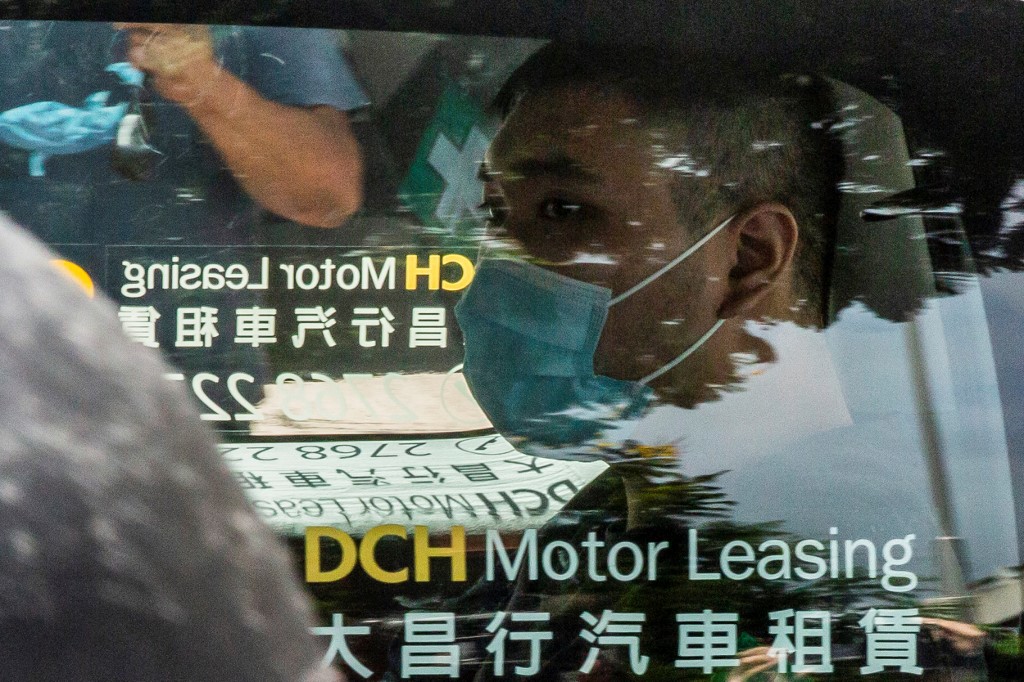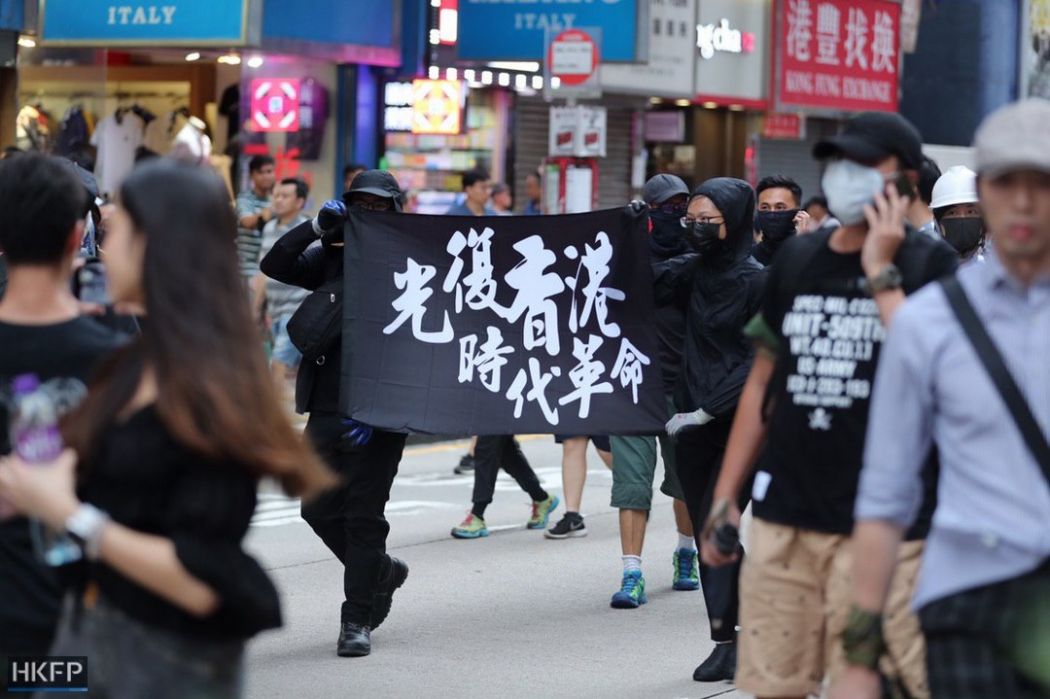Hong Kong’s High Court has found a man guilty in the city’s first-ever trial under the Beijing-imposed national security law.
In a landmark verdict on Tuesday, 24-year-old Tong Ying-kit was convicted of committing incitement to secession and terrorist activities by Madam Justices Esther Toh, Anthea Pang and Justice Wilson Chan. He could face up to life imprisonment as the court adjourned the sentencing. Mitigation is set for Thursday.

The activist, who had pleaded not guilty to the charges, is the first person to be found guilty of breaching the controversial security legislation, which also outlaws subversion and collusion with foreign powers. Tuesday’s ruling will likely set a precedent for upcoming national security cases.
Tong was arrested on July 1 last year, after he rode a motorcycle displaying a “Liberate Hong Kong, revolution of our times” protest flag into three policemen during a demonstration in Wan Chai. In a departure from the common law tradition, he was denied bail and a jury.
Protest slogan ‘incites’ others
Tong’s 15-day trial, which concluded last Tuesday, saw the prosecution and defence call three academics to debate the meaning of the protest slogan, which was banned by the government a day after Tong’s arrest for carrying connotations of “pro-independence, secession and subversion.”
In handing down the verdict, Madam Justice Toh – who was handpicked by Chief Executive Carrie Lam to handle national security cases – said that, in the particular circumstances where Tong displayed the “Liberate Hong Kong” slogan, such a phrase was capable of inciting others to commit secession.

Toh said Tong understood the slogan carried a secessionist meaning, which was to separate the HKSAR from the People’s Republic of China. Tong’s act of displaying the slogan, which the court said was a political agenda advocated by Tong, was intended to communicate secessionist meaning and to incite others to commit secession.
During the trial, prosecutor Anthony Chau relied on a report from Lingnan University historian Lau Chi-pang, which said the eight-word slogan was raised “necessarily for the objective of separating the HKSAR from the People’s Republic of China.”

But the defence – led by Senior Counsel Clive Grossman and barrister Lawrence Lau – cited empirical data gathered by Chinese University journalism scholar Francis Lee, and a report he co-wrote with politics professor Eliza Lee of the University of Hong Kong, to argue that the phrase was “ambiguous” and “open to interpretations.”
On the expert witnesses’ evidence, the judges agreed with Professor Lau’s analysis that the two parts of the Chinese slogan had a “close semantic connection” and “cannot be construed separately.”
The analysis provided by the defence experts, however, was said to be not particularly helpful. The court said the CUHK scholar’s research was to test a “key hypothesis” – whether the slogan carried one meaning only and that was how everyone interpreted it. “The analysis was not directed at the question as to whether the slogan was capable of having the meaning ascribed to it by Professor Lau,” the written judgement read.

In their ruling, the court cited the defence expert report in which the journalism scholar and politics professor accepted that it was “undeniable” that ex-localist leader Edward Leung – who “improvised” the slogan – spoke in favour of Hong Kong’s political independence during his 2016 election speeches. The court said Grossman’s closing remark that the phrase was “too vague” to be capable of carrying any secessionist meaning contradicted evidence given by Francis Lee and Eliza Lee.
‘Serious violence’
On Tuesday, the three-judge panel also ruled that the activist’s failure to stop at police check lines and his act of driving into police involved “serious violence against persons,” and “seriously jeopardised public safety or security.”

His actions were carried out “with a view to intimidate the public in order to pursue political agenda.”
“The defendant’s failure to stop at all police checklines, eventually crashing into the police, was a deliberate challenge mounted against the police, a symbol of Hong Kong’s law and order,” Toh said.
Grossman submitted earlier that Tong brought first aid items with him on the day of the protest and a terrorist would not have acted that way. But the court dismissed this argument, saying he was “taking bits and pieces out of the entire picture” of what the activist did.

“The situation may be so volatile that the person may just need to blend in with the ordinary members of the community or to act perfectly normally at times,” the judgement read.
‘Ominous moment’
Amnesty International’s Asia-Pacific Regional Director Yamini Mishra called the ruling an “ominous moment” for human rights in Hong Kong: “To convict Tong Ying-kit of ‘secession’ for displaying a flag bearing a widely used political slogan is a violation of international law, under which expression must not be criminalized unless it poses a concrete threat. This feels like the beginning of the end for freedom of expression in Hong Kong.”
“People should be free to use political slogans during protests, and Tong Ying-kit should not be punished for exercising his right to free speech,” Mishra added.

As the public prosecutors left the court on Tuesday, some supporters of Tong shouted: “Rubbish!”
The test case ruling saw wide media coverage as the dozens of local and international journalists filled the seats in the main court and court extension were almost full.
Support HKFP | Policies & Ethics | Error/typo? | Contact Us | Newsletter | Transparency & Annual Report | Apps
Help safeguard press freedom & keep HKFP free for all readers by supporting our team
























